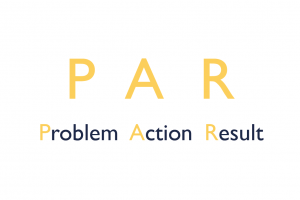Use your research to tailor your application and persuade the employer that you are the best candidate for the role.
Show what you can offer their business – demonstrate your enthusiasm, how you fulfil the job specification and would blend with their corporate culture.
Illustrate with relevant attributes, skills and achievements from your work and life.
Let Them Know You Are Keen To Join!
Show enthusiasm for the organisation/business/job, by relating it to your experience, your values or interests.
Explain why you decided to pursue this career and what attracted you to them in particular:
Use a ‘hook’ their annual report, or news of a product launch or acquisition, showing you have paid attention and have a genuine interest.
Create a cultural link between you and the company to illustrate why you believe you would fit in well.
Prepare pertinent questions for interviews, networking and social media, e.g:
Demonstrate interest and commercial awareness by discussing how relevant business developments might impact the organisation e.g. new legislation or international events.
Indicate commitment by asking about training opportunities and career progression.
Provide Evidence That You Meet The Job Requirements
Make it clear that whatever it is the company wants you can fulfil their needs!
Skills
In addition to the requisite job-related skills, companies look for certain employability skills, such as working independently and in teams, good communication, decision-making, leadership, and getting on with other people.
Be informative but concise
Employers want to see that you played an active role and made a positive contribution.
So when answering competency-based questions, or describing skills and achievements, structure your responses by using the PAR technique:

What was the problem? Outline the situation and task you faced.
What action did you take and why? How did you solve the problem?
Summarise and analyse the result of your actions.
Where relevant, provide measurable evidence of your achievements e.g. halved customer complaints, won a competition, raised £500 for charity, % growth in business from this change.
Note: This is also referred to as the STAR technique SITUATION TASK ACTION RESULT
Demonstrate excellence, but show humility
Selling yourself is recognised as one of the hardest yet most important things to do; it’s a chance to show off your strengths and achievements – but there’s a fine line between being impressive and overselling.
At graduate level you are not expected to know everything; so analyse your achievements, explaining what you have learned, suggest how you could improve things next time, or mention relevant skills you might wish to develop further.
Whether in writing or face-to-face, be confident, but not over-assertive nor arrogant.
Show That You Will Fit In
The trick is to prove you are compatible with a company, both professionally and personally. Emphasise things about yourself and what matters to you, which will most resonate with the employer. Using your research, paraphrase your own version of elements that relate to the company values, culture, structure and vision. Show how you get their style and could connect with the team.
Cultural Fit
The company website, blogs, social media, and observation of its products/services and behaviour will all give you some insight into the culture and ‘personality’ of an organisation.
Is it formal and corporate? Creative and quirky? Fast-moving, high pressure? Or relaxed, liberal, informal? Tailor your application accordingly:
If it’s an energetic, pressured environment, give examples of how you can meet deadlines, thrive in a fast-moving atmosphere and stay calm under pressure.
If you notice a more laid-back, casual culture, show that you are a self-starter, capable of completing projects without constant supervision.
Emphasis on teamwork? Talk about your love of team sports, responsibility for leading a team, how you collaborated effectively with other people to resolve a problem.
Creative and forward–thinking company? Use appropriate language and style to display your creative edge; you could discuss work achievements when you did things differently, activities that pushed you out of your comfort zone, your love of artistic pursuits or exhibitions you attended.
Work Life Balance
Show that you’re well-rounded.
Employers will hire people whom they can relate to, who would get on well with the team.
Particularly in any business centred on client-relationships, they will want to recruit a well-rounded individual, who is comfortable holding a casual conversation with clients from different backgrounds and levels of seniority.
Draw on evidence from your whole life when describing your strengths, skills and achievements. Include examples from extra-curricular activities, sports, academic studies, volunteering and travels, as well as previous work experience. Leisure pursuits give clues about your personality and can be a differentiating factor between high calibre candidates. You may well be quizzed about them at interview stage.
Describe interests/activities in a way that highlights relevant assets and transferable skills, helping to position yourself as a perfect fit for the role and company culture.
See CV Tips – Interests & Activities and examples of how to sell yourself).
